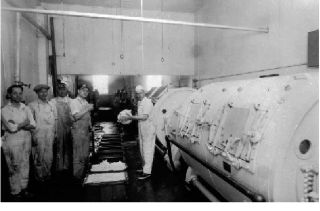Many Plateau residents recall The Depression through the eyes of a child
The Great Depression was an economic slump in North America, Europe and other industrialized areas of the world that began in 1929 and lasted until about 1939.
The Depression followed hot on the heals of the Roaring ‘20s, an economic boom where Americans were buying big-ticket items like cars and appliances, on credit, and putting their money in the stock market.
When the stock market crashed in October 1929, it set off a chain of events that have been unequalled in American history.
Today, there’s a bit of deja vu for some.
Today’s stock market is sliding.
According to history, when the market crashed in 1929 it strained banks and other financial institutions and in many situations caused failure.
Today’s headlines are filled with bank bailouts.
During the Depression, unemployment was high and manufacturing output was low.
Today’s unemployment numbers continue to climb as business after business closes its doors or cuts costs.
“Even though things are a little tight right now I don’t think it’s near as tight as it was for my parents going through the Depression,” Mary Johns said.
“They knew they weren’t alone,” said Jobyna Nickum, Enumclaw Senior Activity Center manager. “They knew they’d make it through. That’s what many seniors here have taught me.
“They all knew their neighbors were in the same boat and rallied together to help each other.”
The soon-to-be 88 year old Johns remembers her mother stretching chicken, broth and rice to feed the family for days; her mother taking in ironing from a cousin’s funeral parlor; and as kids, picking berries, grapes and walnuts to feed the family.
“My father had a hard time finding a job,” she said, although she does remember him working as a truck driver.
Wanda Sheets, 82, who was born on the Yakima Indian Reservation and grew up in foster care, remembers many other foster children.
“Every family had foster kids because it was income,” she said.
She usually ate lunch, thanks to federally funded programs, but she said she would pretend not to like the food so she could share it with her less-fortunate friends. She said there were cars and gasoline, but they got from place to place by walking or horse and buggy.
Carol Pedersen remembers her mother, a miner’s widow, putting money in a bank in Buckley, saving for one of those new cars.
“One day she went to the bank and there was a sign that said the bank was closed and the money was gone,” Pedersen said.
“We managed,” Johns said. “We really weren’t deprived of anything.”
She said her father would repair their shoes.
“Bless his heart, he did the best he could,” she said.
She remembers her clothes were made out of sugar sacks or were a hand-me-down gift from her mother’s niece who would send a box to the family and Johns’ mother would alter them to fit or use them for material to sew new ones.
“In those days my folks couldn’t afford to buy a house so we rented,” she recalled. “Every time someone wanted to buy the house we had to move.”
The family finally inherited some money and bought a home.
“But we always had a roof over our heads and food to eat,” she said. “I don’t think it hurt us any to live like that. I think we’re better people for it.”
The difference between then and today’s current economic situation, they say, is today’s conveniences make people less self-sufficiant.
“Society today is not prepared,” Carol Lobdell said. “Today we’re not prepared to mend clothes or can food or plant a garden or determine our wants from our needs.”
Johns remembered their home was heated with a wood stove and Sheets recalls working as a child.
“We knew we could work. We were cutting asparagus when we were this big,” she said holding her hand at waist level.
Learning how to live within your means was key.
“The first 10 percent goes to the lord,” Jean Gillespie said. “If you gave 10 cents, 10 pennies, for every dollar to the lord, then everything would turn out OK.”
“I think we’re going to see it harder,” Johns said. “I don’t know if I see things from that time, but I do think it’s going to get harder.
“I don’t think our children are ready for that and my heart aches for them.”
Reach Brenda Sexton at bsexton@courierherald.com or 360-802-8206.



